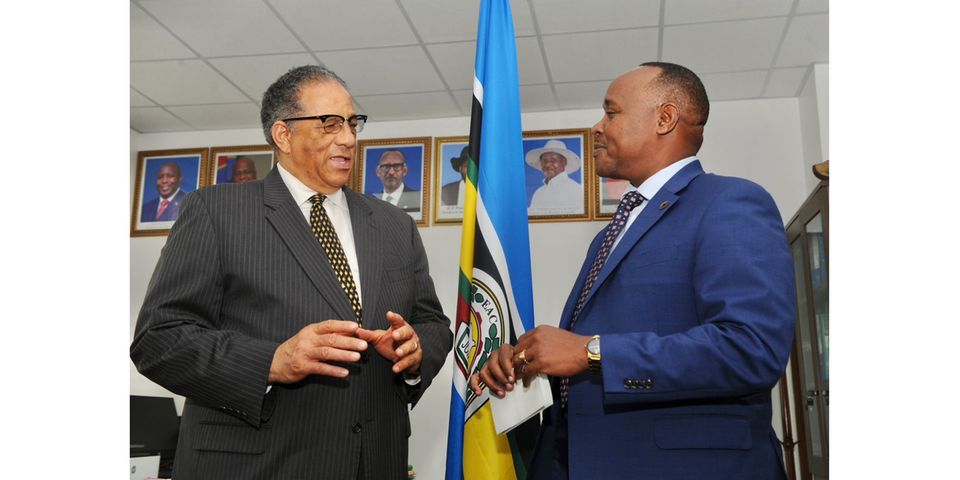US pledges to support East Africa’s private sector

GOOBJOOG NEWS | ARUSHA: The United States government has announced an investment of over $40 million in the blue economy in Zanzibar as a way of boosting the growth of private sectors in East Africa.
American ambassador to Tanzania, Mr Michael A. Battle said US investors injected the funds to also boost various sectors to promote sustainable economic development in the region.
“We are focused on promoting the growth of the private sector and sustainable economic development in the East African Community (EAC) region,” he said.
The sectors include; fisheries, aquaculture, maritime transport, coastal marine and maritime transport, tourism, energy, and other marine ecosystem services.
Mr Battle, who is also accredited to the EAC, paid a visit to the EABC offices to explore areas of partnership aimed at strengthening East Africa-USA trade and investment ties.
EABC executive director John Bosco Kalisa told the US envoy that the bloc was open for business. “There is political goodwill from the EAC Heads of State to improve the trade and investment climate in the region,” he pointed out.
He said the admission of DR Congo has expanded the bloc’s market to $305.3 billion and a total population of 283.7 million.
The EAC has conducted a verification mission to assess Somalia’s readiness to join the community as the eighth member.
Mr Kalisa further stated that the regional business body was committed to promoting trade for peace programmes in the region “to ease doing business”.
Also highlighted during the visit was USAID’s Feed the Future project through TradeMark Africa and the Corporate Council of Africa.
Other issues that came up for discussion were the US-East Africa Trade and Investment Forum and the forthcoming US-Africa Business Summit 2023, to be held in Botswana.
“The EAC treaty is people-centred and market-driven, and EABC is at the forefront of championing advocacy for the full implementation of the Common Market and Customs Union protocols,” Mr Kalisa said.
However, he emphasized that the acceleration of the Common Market was crucial for the achievement of the Monetary Union and its attendant single currency economy.